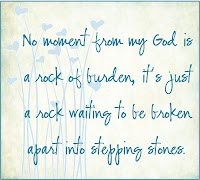
Thursday's Therapy
Writing Sometimes Helps

from
A TCF Speech – 8 Things I’ve Learned About the Grief of a Grieving Parent
Part Four of Eight
Sunday, July 6, 2003 - TCF National Conference Closing Speech by Charlie Walton
Part Four
4. WRITING SOMETIMES HELPS
Number four... writing sometimes helps. I have been amazed through the years that people who, way back in elementary school, were traumatized by some English teacher with a merciless red grading pencil, traumatized into thinking that they could never write anything, will suddenly produce beautiful poems and other written sentiments in the process of remembering their children.
There is something therapeutic about putting things on paper, reading them over, changing a word here, adjusting an emphasis there, that really helps to focus the mind and get some of those inner feelings out where we can deal with them more effectively.
It works by the same principle as making a list when you've got more to do than you can hold in your mind. You know, when you think you have a hundred things to do, and then you put that list down on paper, and suddenly realized that you really only had seven things to do. It's just that they were swirling around in your head so fast that seven things looked like a hundred things.
So, consider writing down your feelings if you haven't already.
Don't worry about phrasing things for others to read. You don't need to start out shooting for publication. Just put some words on paper that work for you, words that feel good when you read them over to yourself. Later, if your words help others when they are shared, that's good too. But, for starters, just dump some of what's in your mind onto paper. Read it over, work it over, bathe it in tears until it feels good.
Writing doesn't necessarily work for everybody, but maybe pulling things out of your weary mind and onto a defenseless piece of paper can work for you.
************
More quotes regarding the helpfulness of writing amidst your grief:
"The mind-shift between pain and possibility depends on your willingness to feel, to become vulnerable."
Rico believes this is done
"by focusing on whatever you are feeling here and now, this very moment, and giving it your words on a page."
Telling a story about these feelings takes the process one step further and allows even more healing to take place.
~Gabriele Rico, Pain and Possibility
One must tell it slowly and carefully; how his son fell ill, how he suffered, what he said before he died, how he died. One must describe every detail of the funeral, and the journey to the hospital to fetch the defunct’s clothes. His daughter Anissia remained in the village—one must talk about her too. Was it nothing he had to tell? Surely the listener would gasp and sigh, and sympathize with him?
~Anton Chekhov
******
And from www.oneyearofwritingandhealing.com comes the following inspirational saga of how one mother grappled with her deep grief:
One particular article that caught my attention is one entitled “Healing Power of the Pen” …a moving article by a woman, Alice J. Wisler, written four years after the death of her four-year-old son, Daniel.
The first year after the death of a child is like having the worst noise possible running through your head each day and night. There is no way to turn the horrendous sounds off because there is no off button. I wrote through that noise. . .
She writes of carrying her journal to a particular spot beneath weeping willows at a local park and writing there. She did this, she says, over the course of many months, and she observes, with the benefit of hindsight, how her writing moved along a progression
similar to that of many of the psalms:
“starting with anger and agony and, gradually, ending with hope.”
She writes of how writing can begin the process of transforming devastation:
We enter into our devastation, get a good grip on what our struggles are and something about seeing them on paper causes us to realize the pain is not only within us anymore. It is shared, even if only on a sheet of notebook paper.
It is documented and the more we write, the better we are able to understand and deal with our intense sorrow.
Ms. Wisler offers such a deeply felt and hard-earned template of what is possible:
Moving from the inarticulate—the worst noise possible—those horrendous sounds inside her head with no off button—to the articulate. Moving from noise to words.
Moving, over the course of many months—and perhaps years—from a place of devastation to a place where she is able to understand and deal with intense sorrow.
Perhaps what grief requires, as much as anything, is that the process not be interrupted. That it find a time and a place in which to unfold--with a companion (when possible) and without (too much) interruption.
And, perhaps, at least for some of us, writing can play a role in this process.
******











































No comments:
Post a Comment